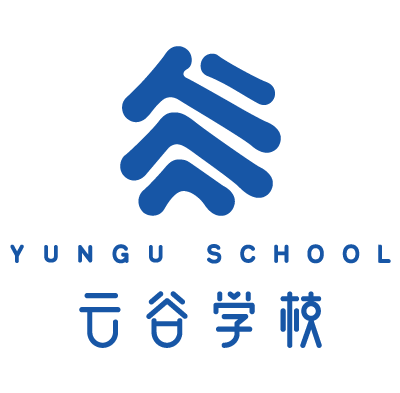云谷文化
很多人对云谷——这所有阿里基因和创业基因的年轻学校有这样的疑问:
云谷有什么样的学校文化?
什么样的价值观是云谷相信的?
它在走一条什么样的路、将去向何方?
一、云谷味儿:我们愉快的玩耍规则
云谷人传承并践行着愉快的玩耍守则,这是云谷人对“快乐工作,认真生活”的共创。因为相信,所以简单。
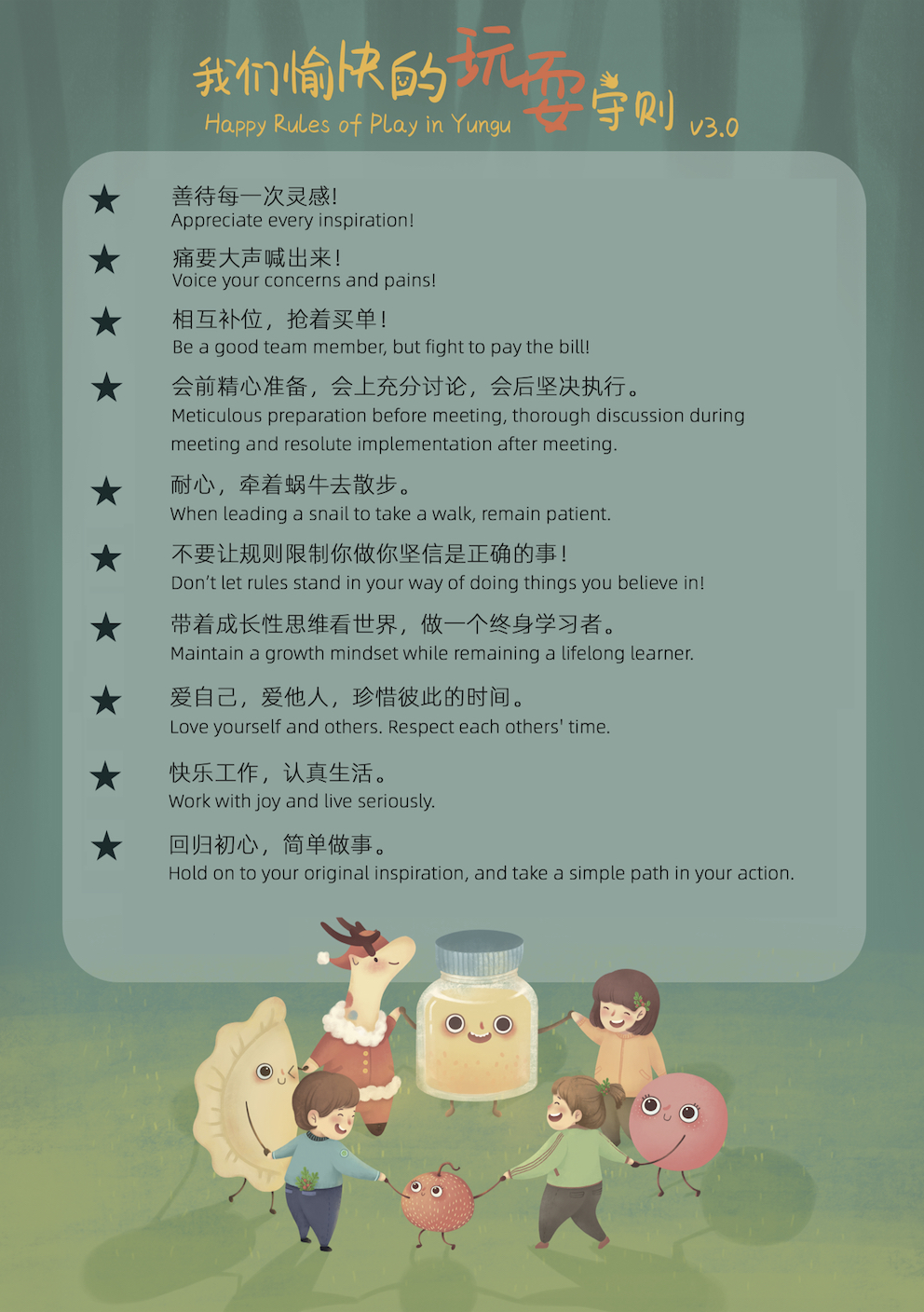
二、共创文化 | 用创业者心态,在“吵架”和脑洞中走向认同
云谷内部经常看到一些这样的“会”:在Check In(开场)环节,主持人带领大家抽离出日常工作,带着自己的期待进入话题,随后一群人开启天马行空的脑洞模式——可能面红耳赤,没有结论,会议还有可能遥遥无期;还有一种七八个人临时碰面的十分钟Kick Off(启动会),PM在这之前只要各方调研、充分沟通,小短会上过一遍Rundown(流程),大家就各奔东西,分头执行;也有Review(复盘会),带着数据、分析,做检验、反思,回顾优点和缺腿儿,聊聊经验教训怎么落实到下一次行动计划。
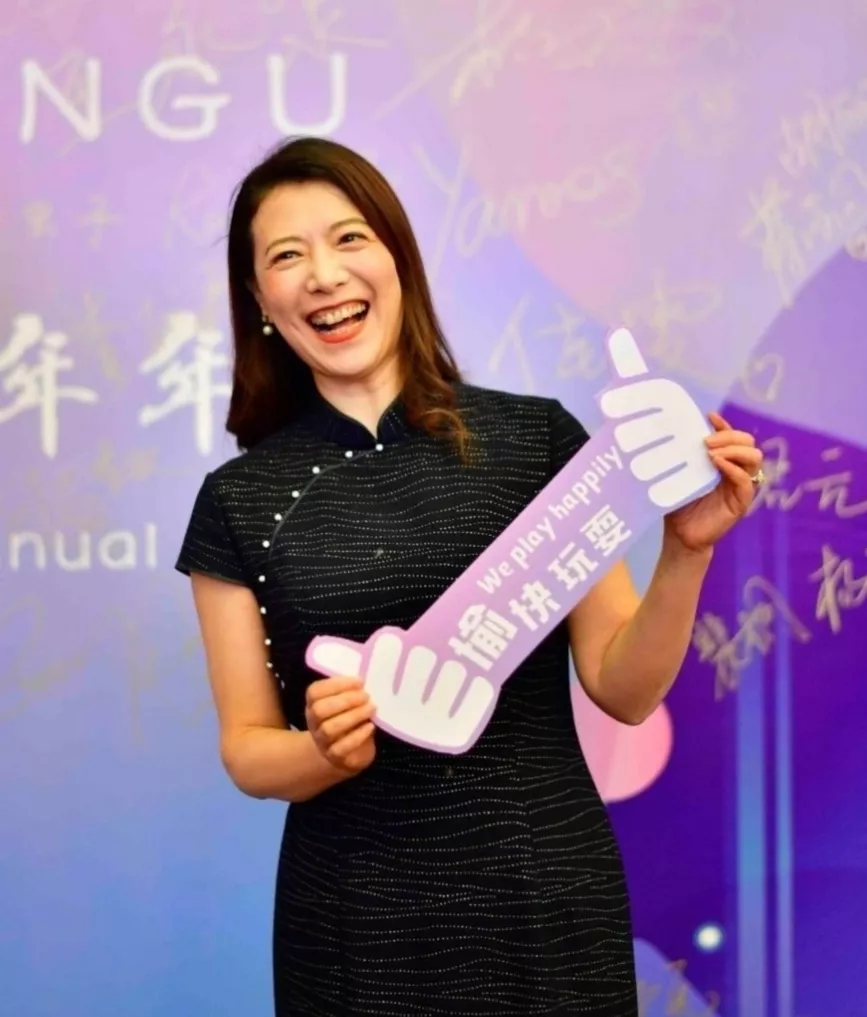
冯晨:
“刚进云谷的时候,十余年的管理经验让我坚定地相信,校长是出思想的,是指方向的,校长必须制定好学校的发展规划、团队去执行落实。但这个想法在我来到云谷后不断受到冲击。 在管理岗位做久了,会习惯性地做决策。但这一年我会经常跟自己说,不要着急去做决策,要让自己的声音弱一点,让老师们的声音强一点。我觉得特别自豪的是云谷的共创文化已经有了雏形,我看到了老师们的创造力,看到了老师们真正成为云谷学校主人的可能性。这对云谷这个新型组织而言,这样的文化是极其珍贵的,它甚至会成为云谷成长的发动机。
共创会只是共创文化的一种形式,我希望云谷的共创文化能基于共创会做升级——云谷真正追求的共创文化是每一个云谷人以主人翁的姿态,在各个不同的工作场域自主自发创新创造的文化,是一个自上升下、自下而上共同创造的过程。正如云谷的使命:‘让每一位孩子成为最好的自己’,这句话既不是来源于合伙人,也不是源于校董会,而是来源于云谷人共同的相信和思考。”
三、使命驱动 | 带着使命感,在既有规矩又有温度的土壤里全速成长
云谷不用严苛的、繁复的考评制度考核老师。传统的考核“KPI”是组织给你的单一量化管理目标,完不成KPI就意味着你达不到上级的要求标准。而云谷更关注的是,每个人的目标都是云谷团队愿景和个人发展目标的统一:
①自我评估:上一学年目标达成情况反思回顾,明确个人成长规划和目标
②成长谈话:和导师交流,将自己发自内心想做的事情更加清晰地结合团队愿景,结合导师和同伴的多方反馈,制定有效目标
③期中回顾:行进过程中,及时做目标校准和调整
每一个身怀绝技的梦想家来到云谷,必定带着在云谷实现某种价值的使命感而来,用马老师的话说:“对教育是真热爱”,这是一切的前提。
什么样的行为是云谷会被“一票否决”的红线?
→ 违法、违反社会公德;
→ 诚信、廉正问题;
→ 不是真正地爱孩子。
在这样一所因使命感而创办的学校里,云谷希望老师具有强大的自我约束力,能在一片既有规矩又有温度的土壤里舒展地成长。
四、真实坦诚 | 葆有赤子之心,在现实面前永远有真实表达和面对的勇气
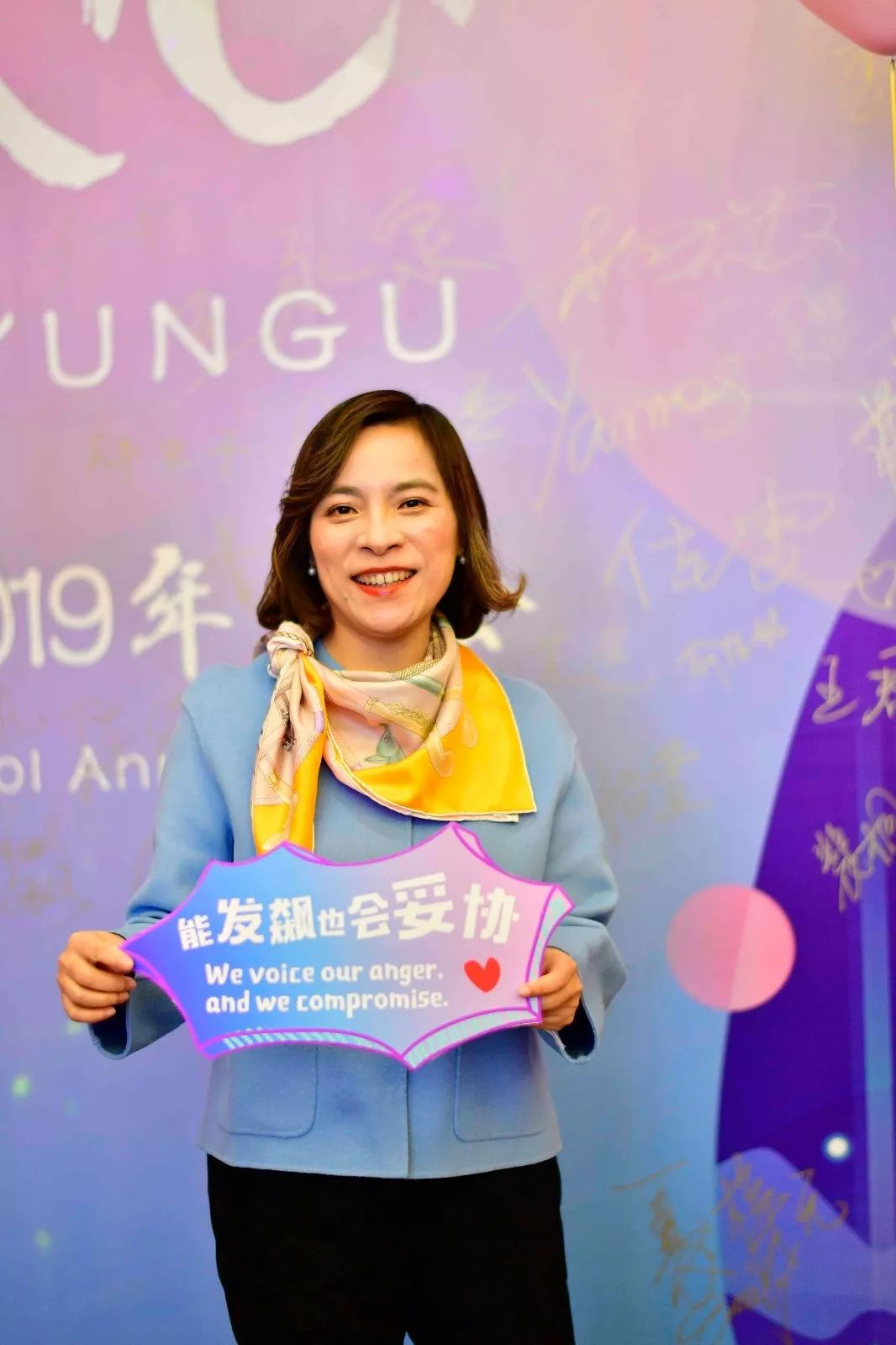
Cherry:
“真实对于云谷来说尤其重要。我们让孩子真实地对待自己的情感,我们让学生去学习真实的本领,那对于我们自己——云谷人,我们更要敢于讲真话,敢于表达自己真实的感情,敢于做客观的反馈,而不是你好我好大家好。我非常推崇Open Door Policy(门户开放政策),打开办公室的门,用开放的心去迎接每个人的交流。
每一位云谷人都被期待:
①讲真话、讲真感受、讲真评价;直截了当、开诚布公。
②没有官僚的预约,任何人的门都是打开的。
③如果你认为是真正重要的事,希望你念念不忘,执着、不要放弃。”
五、文化包容 | 带着好奇心与同理心,理解包容庆祝不同文化的融合
云谷是一所中国学校,为孩子提供多元的教育环境,让学生在立足中国、学习中国文化的同时,领略世界优秀文化、兼具全球沟通视野和国际情怀,形成多元视角以及跨文化的沟通能力。现在的云谷,有40位(33%)有海外受教育背景的老师,13位(11%)外籍老师,跨文化沟通是必需也是必然。关于跨文化理解,云谷有两点相信:
什么样的老师决定了我们将培养出什么样的孩子。我们希望在云谷这个“小社会”中营造跨文化交流的氛围,让老师和学生在立足本土的基础上,尊重、体验不同语言背后的文化乐趣,为老师们提供更便捷、更丰富的国际化交流机会。
中教和外教共同承担着教书、育人、共建云谷的职责。云谷希望创设这样的环境:外教并非语言教授者,中教和外教在教育上没有主角、配角之分,任何一个环节都是共同参与、共同创建。
六、云谷人画像
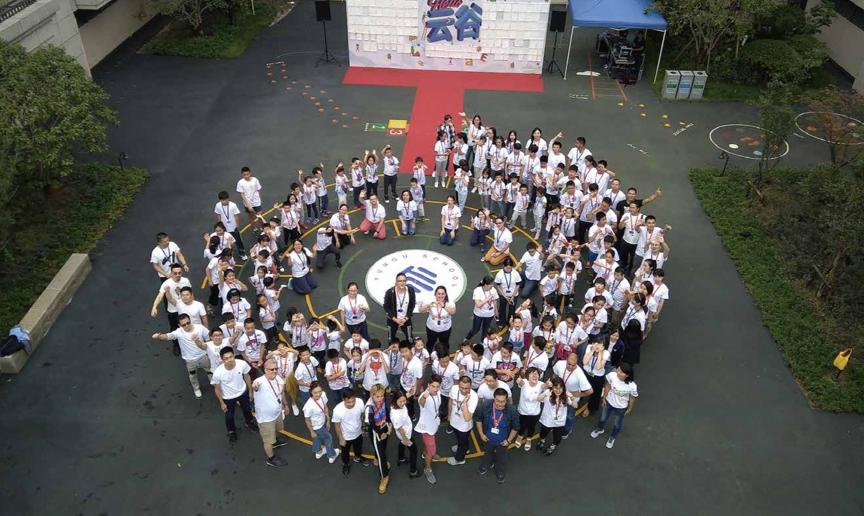
1.长成你自己的样子
“就扮演你自己吧,别人都有人演了。”
“个性化教育”是云谷最坚定的追求。每个人都有不同的特点和潜能,我们把每一个学生视为独特的个体,对待老师,我们也同样尊重每一位老师的独特性,并且坚信老师的成长必须也是个性化的。“T”型是云谷老师素养的理想画像。T的那“一横”,表示云谷老师需要具备的“高位均衡”综合能力;“一竖”指向纵深,代表老师的个性发展。来到云谷的老师都是“对味儿的”,身上一定有一些独特的东西,能够让独特成为特长,是云谷土壤所希望起到的作用:每个老师都可以根据自己的兴趣和天赋来加强自己某方面的能力,成为一个小领域的专家。丰富多元的老师能力丛林将是云谷最宝贵的财富。
冯晨
“学校原本就是个互为人师的地方:向身边的同伴学习、向孩子们学习。希望大家能有这样的想法:在云谷,我一定不是最厉害的那个,但我可以把比我厉害的人都凝聚在一起,大家激情饱满地去工作,这就是我的独特之处,我的厉害之处。每个人都有自己的特质和闪光点,你能够来到云谷,一定是你身上有云谷需要的独特的东西。一方面我们要有开放的心态,学习吸纳别人的优点,但同时也要珍视和葆有自己的特质,不要把自己给学没了。如果适应得慢点也没关系,放松一些,只要你够开放、够真实,你定会在云谷长得很舒展。 ”
2.打破惯性,颠覆自己
云谷创校第二年年会上,Cherry向大家提出了这样5个灵魂拷问:
(1)你是挑刺的人,还是挑出刺的人?
问题满天飞,没有问题也不存在江湖。但是真正伸出双手把问题解决的人,才是真正的参与者。所有加入云谷的人都有天马行空的想法和满腔的热血。但是真正要贴地飞行的时候,要问问自己,我们手里是不是真的有金刚钻,我们是不是真的有勇气去站出来说 let’s fix it !
(2)当别人要求你做一件事情,你是稀里糊涂去干,还是会了解背后的原因、意义、价值?
你看不明白的事情,要有胆量去直接问,不要担心暴露自己见识不够、不专业,或许你的提问能刺激当事人重新审视当前的问题。
(3)做事初心是什么,是为学生、为学校,还是为上级?
我上这堂课到底是为了满足自己想要尝试的教法,还是从孩子出发?
我做一件事情是因为上级感兴趣、会看见,为了得到那朵小红花,还是真正为学校?
(4)管理者怀着什么样的心态,是培养下属,还是把下属当执行工具?
有的管理者把下属是当作实现工作目标的工具,而有的管理者却更希望团队成长、得到锤炼,这两种心态是完全是不一样的。
(5)管理者敢不敢用比自己优秀的人?是否在担心自己的光彩被埋没?
管理者的心胸如果够宽广,就应该和比自己优秀的人合作。我们相信老师的胸怀一定是坦诚宽广的,因为所有的老师都希望学生比自己厉害。
打破惯性,颠覆自己是一个痛的过程,特别当要跟自己过往的经验说“bye bye”的时候,尤为不易,或许会经历一个漫长的自我对话的过程。“不破不立”,“破”之后是新的天地,“痛”之后是更好的自己。
七、云谷组织画像
1.扁平化的组织
Thomas Friedman的《World is flat》(世界是平的)一书中提到,这世界早已“扁平”至唾手可得,我们有什么理由不让学校长出这样的文化呢?
|冯晨
我对团队的期待是:通过每个人的努力让校园更多一些学术,更多一些民主,云谷不应该有官僚味儿、行政味儿,部门与部门之间应该是更多的相互支持、协作和服务。我对自己的角色期待是:成为一个支持者,支持到团队、支持到老师;成为一个协调者,希望可以协调好各部门各方面的关系,助力学校发展;当然,也应该是一个引领者,能够更加前瞻地把握前行的方向、节奏和团队的温度。四大院(学生发展研究院、课程研究院、教育科学研究院、教育科技研发院);补给站(技术工程师、视觉设计中心、行政服务、HR、采购、品牌传播等部门)构成了云谷主要的组织架构。40多人的补给站团队作为支持方辅助前台老师教育场景,也作为“双师”参与教学,最重要的任务是——探索管理新型现代化学校的一套完整系统和架构。
在如此多角色和业务线的支持系统里,每一个不安于现状的人都可以从自己和小团队出发,自己攒队伍、搞事情,云谷鼓励这样的生长。
2.学术味的组织
云谷没有论文评奖和职称考核,也不在意任何奖杯和金牌。理想中的云谷更像一个研究院:老师们在真实的场景里研究孩子的成长、研究老师的发展、研究学习内容、研究学习策略、研究教育与技术的链接。每一个人是学术研究的主体,并且能找到志同道合的伙伴。“真实”是云谷科研最重要的追求:真实的情境、真实的问题、能真正应用。云谷的科研提倡这样三个出发点:
→ 不怕研究问题小,哪怕很小很小,只要带着研究的精神去做行动研究并且加以分享,都可以成为一个好的科研。
→ 科研的成果可以多种多样,论文、课题报告只是其中一个部分,也可以是一个案例、一种流程机制、一种教学方法的课堂展示、一套老师工具等等。
→ 做科研的目的,是真的提升自己的教学效果,提高学生的学习感受和能力,解决工作中的实际问题。
“智库”是教育科学研究院搭建的一个内部分享平台,是云谷“科研扁平化”的尝试:每一个老师都是智库的主人,可以在这里建立自己的小平台,展示自己正在研究和探索的领域及进展;它也是开放和互动的,希望通过把自己向其他人打开:“把自己的研究暴露在大家的监督下,把自己的探索暴露在大家的帮助下,让自己的能力暴露在那些可以发起协作的人的面前。”
谷主马老师和云谷老师交流时曾提到:“我希望云谷教育体系培养孩子所走的路,都能够积累成“科研”成果,形成云谷教育的理念思想,在农村、城市或其他国家推行。”秉承着这样的愿景,云谷希望能够把现在的每一步探索和尝试都积累下来,惠及更多人。
3.为人赋能
在这样一个“多元复合”的校园里,有很多不同的老师角色:富有丰富经验的优秀中国老师、有海内外知名大学教育背景的老师、能把握中西方教育理念的外籍老师、以及来自不同行业背景的专家型人才。每一个云谷人都有可能身兼多重角色:是老师,导师,学院长,也可能摇身一变成为PM。云谷人有着不同的文化背景、经验认知、优势特质,只有当每一个人都得到赋能,才能产生强大的创造力。云谷正在做这样的尝试:
→ 允许出错,让老师在安全的环境中探索;鼓励老师尝试和反思,提升老师群体的内驱力。
→ 帮助老师建立自己的成长规划,在提升工作所需能力的基础上深入发展自己的兴趣领域,老师成长可以个性化,尊重老师的成长速度,给老师提供资源支持。
→ 倡导在实践中学习和成长:尽管为每一位云谷人提供了丰富的成长培训菜单,像埃里克森教练型导师、向外心态的选择培训,探究性学习、PBL培训;项目管理、设计思维;急救培训等等。但学校和老师们必须达成共识:学习和成长的大部分都发生在实践中,自己亲自参与并反思的直接实践和通过向其他人学习经验的间接实践才是成长的关键。
视人为人,是云谷最核心的价值观。
云谷始终相信,有梦想、很“皮实”,具有幸福感和终身学习力的老师,才能培养具有幸福力和学习力的孩子。一个新学校的成长,混乱和阵痛不可避免,这是摸索的必经之路;当愿景清晰,内心坚定,我们终将拨云见谷,长成理想中的样子。
“云谷的追求是一群有情有义的人一起做一件有意义的事——意义在于,我们是在创造孩子们的未来。”
—— 谷主 马云
